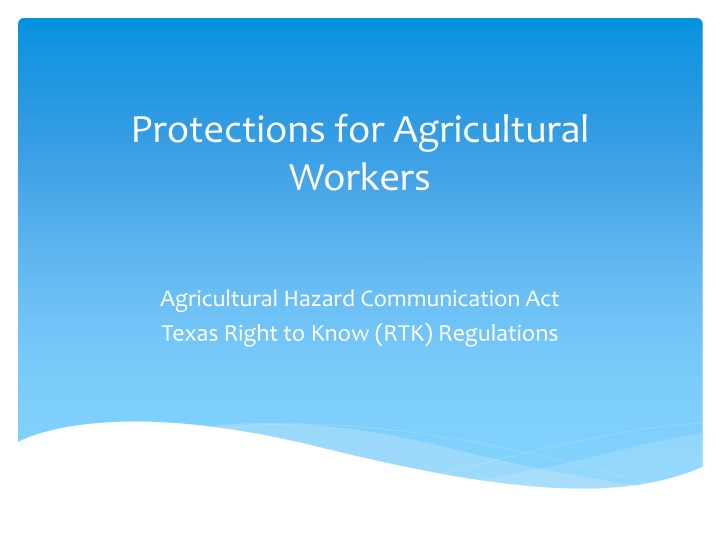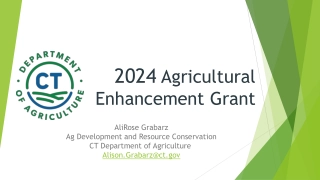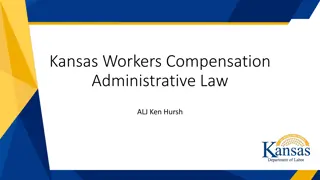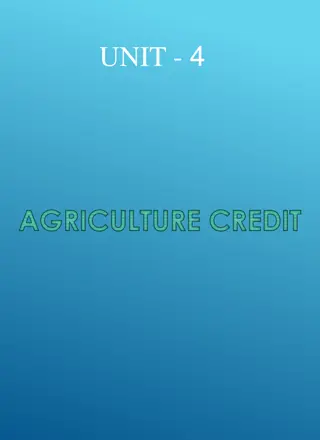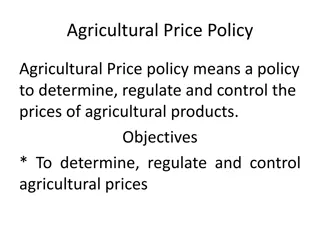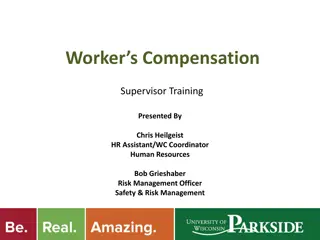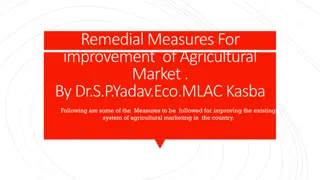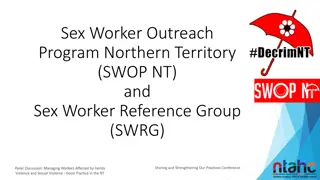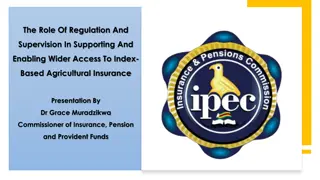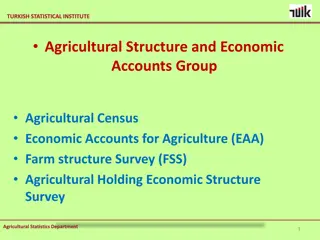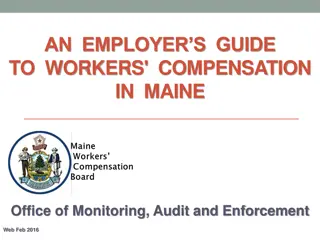Agricultural Workers' Protections under Right-to-Know Regulations
Agricultural workers in Texas have rights under the Agricultural Hazard Communication Act, also known as Right-to-Know (RTK) Law. This Act ensures that agricultural workers receive essential information regarding pesticide exposure, workplace chemicals, and their entitlement to health and safety details. Employers covered by RTK must provide necessary education, access to pesticide information, and protection against retaliation. Compliance with the federal Worker Protection Standard helps fulfill most RTK requirements. Furthermore, local fire chief notification is required for pesticide storage near residential areas.
Download Presentation

Please find below an Image/Link to download the presentation.
The content on the website is provided AS IS for your information and personal use only. It may not be sold, licensed, or shared on other websites without obtaining consent from the author.If you encounter any issues during the download, it is possible that the publisher has removed the file from their server.
You are allowed to download the files provided on this website for personal or commercial use, subject to the condition that they are used lawfully. All files are the property of their respective owners.
The content on the website is provided AS IS for your information and personal use only. It may not be sold, licensed, or shared on other websites without obtaining consent from the author.
E N D
Presentation Transcript
Protections for Agricultural Workers Agricultural Hazard Communication Act Texas Right to Know (RTK) Regulations
Agricultural Hazard Communication Act- Right-To-Know (RTK) The Agricultural Hazard Communication Act was enacted to help protect the people who live and work in agricultural areas from the possible dangers of pesticide exposure. Also known as the Right-to-Know (RTK) Law, it requires employers who meet certain criteria to provide education and access to pesticide information to agricultural workers.
Agricultural workers are entitled to: Receive copies of crop sheets and to have this information read to them in the appropriate language (English or Spanish) by the covered employer or his/her representative Have access to the Workplace Chemical List (WCL) and its attachments upon request. Be informed of the last or next date of pesticide application and applicable restricted-entry intervals (REIs).
Agricultural workers are entintled to: Health and safety information Exercise their rights under the law without fear of retaliation or any disciplinary action Designate a representative to act on their behalf and keep the employee anonymous, if necessary
An Employer is covered by RTK if the employer Stores/uses 55 gallons or 500 lbs of pesticides/pesticide fertilizer blends with the same active ingredient AND Employ seasonal or migrant workers with a gross annual payroll of $15,000 or Employs other workers with a gross annual payroll of $50,000 IF one of these thresholds is not met, the regulation does not apply. However, you may still be protected by the federal Worker Protection Standard (WPS)
RTK and WPS Full compliance with the federal Worker Protection Standard will fulfill MOST of the requirements of RTK.
LOCAL FIRE CHIEF NOTIFICATION Any person who stores pesticides or pesticide/fertilizer blends within mile of a residential area composed of three or more private dwellings for more than 72 hours, shall provide, in writing, a contact name and telephone number to the local fire chief (with jurisdiction over the storage location) and provide a copy of the workplace chemical list upon request. An employer shall allow an on-site inspection by the fire chief upon request as well.
RTK Definition of Agricultural Laborer An individual who does one or more of the following activities at an agricultural establishment including a farm, a tree or sod farm, ranch, packing shed, greenhouse or nursery: Plants, cultivates, harvests or handles an ag commodity in its unmanufactured state. Uses a covered pesticide chemical as part of their duties as an ag laborer May be exposed to a covered pesticide chemical because of his or her job assignment. Plants, cultivates, grows, harvests, detassels, rogues, or treats seeds or seed plants of an ag commodity.
WPS and RTK If an employer covered by RTK complies with applicable provisions of the Worker Protection Standard (WPS) and the following additional, more stringent requirements of RTK, they are considered to be in compliance with RTK:
RTK Employer Compliance 1. Recognize the use of a designated representative, which is an individual or organization to which an agricultural laborer gives written authorization to exercise the laborer s rights under the Agricultural Hazard Communication Act. The representative may be certified by TDA.
RTK Employer Compliance 2. Comply with requirements regarding recording and maintaining the Workplace Chemical List (WCL): * Hazardous chemicals used or stored annually in excess of 55 gallons or 500 pounds must be recorded and maintained. * The product name used on the SDS (formerly MSDS) and container label and the EPA Registration Number. * The date and crop the chemical was applied or used. * The work area in which the chemical was actually stored and used. * Maintain the WCL s for 30 years or file with TDA annually. * Allow workers or their designated representatives access to the WCL when requested.
RTK Employer Compliance 3. Obtain and maintain a Safety Data Sheet (SDS) from manufacturers or distributors: SDS is a document containing chemical hazard and safe handling information per federal OSHA requirements. Employer is responsible for maintaining the most current SDS for each pesticide chemical stored or applied and making accessible to ag laborers, designated representatives, medical personnel, members of the community and emergency personnel. SDS can be found at: http://hazard.com/msds/
RTK Employer Compliance 4. An employer shall not refuse to hire a laborer solely because the laborer has not completed an EPA WPS training program or cannot produce a training card.
RTK Employer Compliance 5. An employer shall provide an appropriate crop sheet and ensure the information is read to each ag laborer that does not possess a current EPA WPS training verification card. Crop sheets are to be provided upon request. Crop sheets are to contain information relevant to specific crops including pesticides most commonly used on the crop, the acute and chronic health effects of the pesticides , ways to minimize exposure, medical emergency measures and ag laborers rights.
More Information RTK: http://www.statutes.legis.state.tx.us/Docs/AG/pdf/AG.125.pdf WPS: http://www.epa.gov/pesticides/health/worker.htm Pesticide Labels & Safety Data Sheets (SDS): http://www.cdms.net/LabelsMsds/LMDefault.aspx?t= Texas Department of Agriculture (TDA) http://www.texasagriculture.gov/RegulatoryPrograms/Pesticides.aspx (512) 463-7476 (800) TELL-TDA (835-5832) Fax (888) 223-8861
